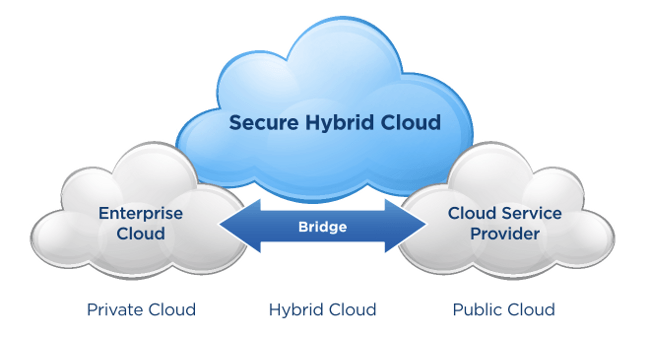Hybrid Cloud Infrastructure: How It Benefits Your Business
Hybrid Cloud Infrastructure: How It Benefits Your Business
In the fast-growing tech world, organizations are continuously trying to find new ways to increase the profit margin of their business. Organizations have eyes on various emerging technologies, which include Artificial Intelligence, Machine Learning, Blockchain, Internet of Things (IoT). One of the most emerging technologies is cloud computing that has provided sustainable results with great potential in a cost-effective manner.
According to a leading market research firm, the global cloud market is expected to grow from 23.7 Billion USD in 2019 and is projected to grow by 73.4 Billion USD in 2024, growing at a CAGR (Compound Annual Growth Rate) of 25.4% during the forecast period. On the other hand, the global market size of the hybrid cloud market is found to have a value of 44.6 Billion USD in 2018. It is expected to grow at USD 97.6 Billion by 2023, registering a CAGR of 17.0%, during the forecast period.
What is Hybrid Cloud & Hybrid Hosting?
Hybrid cloud refers to the mixed computing, storage, and services environment made up of on-premises infrastructure, private cloud services, and public cloud services. Hybrid cloud hosting is the model that allows the organization to implement servers, storage, and dedicated cloud servers on the same network. It is the model that utilizes the public and private cloud hosting tools and techniques to provide a cloud hosting environment to the client. Hybrid cloud hosting is important for many organizations as they are performing complex infrastructure and require multiple IT platforms due to legacy applications, special IT attributes, heavy traffic spikes, and regular mandates.

How to Leverage Hybrid Cloud Infrastructure For a Positive Business Outcome
Organizations are leveraging strategic advantages and benefits offered by the hybrid cloud, and they are increasingly moving towards it as it offers the features of both public cloud as well as hybrid cloud. Dedicated servers are a great fit for many workloads. It is great for running i/o- intensive applications with predictable workloads like databases or mission-critical business applications. Potential inferences are being drawn by several organizations and are trying to make beneficial use from it.
For instance, IBM is helping the state of Ohio to consolidate and modernize all the departmental data centers into computing centers which will integrate and build thousands of applications. It is making use of a shared private cloud which is costing a loss lesser than its existing infrastructure.
“Hybrid cloud is where the public cloud was five years ago—on the verge of significant growth. Many organizations realize that they can get the infrastructure automation benefits of the public cloud without sacrificing their existing investments in applications, operations, and management. They are getting started by targeting specific projects, such as development and testing and running them in the hybrid cloud”
-Mathew Lodge, Vice President, Cloud Services Product Management and Marketing, VMware
United Private Cloud has helped the customers with their hybrid hosting problems
- Quicker Implementation and testing with cloud resources: The cloud has made it much easier for the companies to provision the applications and scale them quickly. Hybrid cloud allows this application to scale out quickly. Hybrid cloud supports different types of application, under the category
- Speciality/ Custom Hardware: The customer needs a solid, high availability and disaster recovery solution. They can keep their production environment on-premise, while keeping a recovery environment in United Private Cloud. It disaster strikes, the business is protected
- Disaster Recovery: Extending the data center for backup, hosting seasonal workloads or accessing additional geographic locations. The ability to leverage the hybrid cloud for disaster recovery avoids needs for secondary data center sites often sits idle as well as the associated capital and operational expenses.
- Application Optimization by Tiers: Customers want to benefit from the advantages of virtualization on certain tiers of their application stack, but need the horsepower for their database that only high-powered physical servers are practical to deliver.
Why should you consider Hybrid Cloud?
Hybrid cloud computing has introduced new possibilities of taking a leap of faith into a world full of digital transformation that can assist organizations in building brand value and reach their goals. With time, it will provide the world with more such possibilities but before adopting them, one must analyze all the challenges, mistakes, advantages, and disadvantages associated with them to make the best out of the existing options.
For more information sign up for a quick demonstration where we will provide you a better comprehension of our services.

